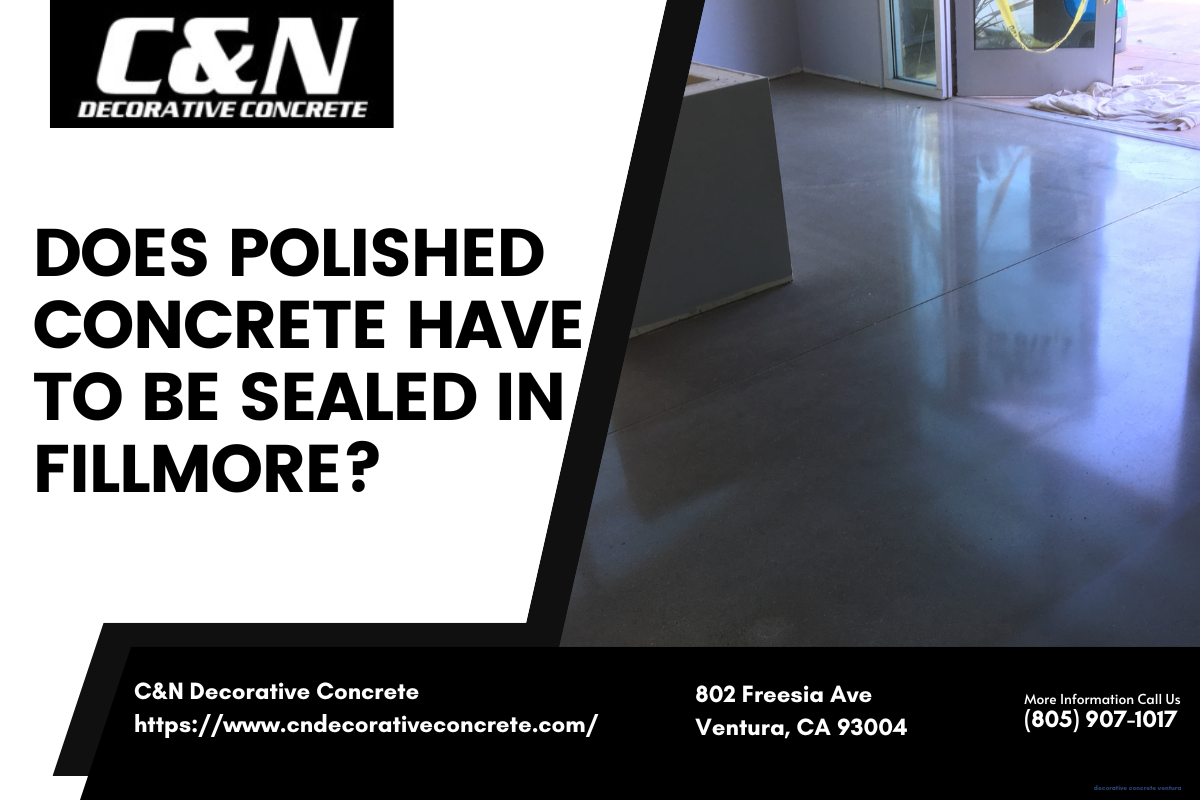TABLE OF CONTENTS
Yes—polished concrete does need to be sealed in Fillmore. Even though it's mechanically polished, concrete sealing is essential to protect it from moisture, staining, and surface wear.
Why Sealing Matters for Polished Concrete
Preserving Appearance and Shine
Polished concrete floors are known for their glossy, attractive look. However, without proper sealing, that shine can dull over time due to foot traffic, spills, and UV exposure. Sealing locks in the finish and keeps it looking sharp and vibrant for years.
Protection Against Moisture and Stains
Concrete is naturally porous. Even polished concrete can absorb liquids like oil, wine, or cleaning chemicals. In Fillmore’s varied climate, sunshine, humidity, and occasional rain, moisture can easily seep in. Sealing creates a protective barrier, preventing deep penetration and making cleanup easier.
What Happens Without Sealing?
Increased Risk of Damage
Unsealed concrete is more prone to cracking, chipping, or surface erosion. In residential and commercial spaces alike, this damage can spread quickly, resulting in costly repairs or early resurfacing.
Stain Absorption
Spills can leave permanent marks if the surface is not sealed. Restaurants, garages, or retail spaces in Ventura County especially benefit from a sealed floor that can resist coffee, oil, and chemical spills.
Types of Sealers for Polished Concrete
Penetrating Sealers
These absorb into the concrete and strengthen it from within, without altering its appearance. Ideal for high-traffic areas, they provide subtle protection while maintaining a natural finish.
Topical Sealers
Applied to the surface, these offer a glossy finish and better stain resistance. While they may require reapplication over time, they are perfect for showrooms and decorative floors.
Hybrid Solutions
Some projects benefit from combining sealers using a penetrating base coat with a topical topcoat. This approach enhances both durability and appearance.
How Often Should You Seal Polished Concrete?
Sealing Frequency
In general, polished concrete in Fillmore should be resealed every 2–3 years. High-traffic commercial floors may need more frequent touch-ups, while residential areas may last longer between applications.
Signs It’s Time to Reseal
- Loss of shine or color
- Increased dust on the surface
- Water or oil stains not repelling properly
If you notice any of these, it’s time to consult a professional like C&N Decorative Concrete for resealing.
Why Choose C&N Decorative Concrete in Ventura County?
Local Expertise
C&N Decorative Concrete understands the unique environmental conditions in Fillmore. From hot summers to moisture-prone winters, their team applies the right sealer for long-term durability.
Superior Products & Application
They only use industry-leading sealants, applied with precision and care. Their professional techniques ensure full coverage, maximum protection, and minimal downtime.
Custom Finishes Available
Whether you want a high-gloss showroom look or a natural matte finish, C&N offers a wide range of customizable sealing options for polished concrete.
Residential & Commercial Solutions
From home garages to retail stores, no project is too big or small. Their team tailors each project to suit your style, budget, and timeline—ensuring satisfaction at every step.
C&N Decorative Concrete is your go-to partner for long-lasting, beautifully sealed polished concrete in Fillmore and greater Ventura, California.






